2020 Kona Hei Hei CR/DL Bike
(discontinued)
| Where To Buy | |||
|---|---|---|---|
Free shipping on orders over $50 (continental U.S. only).
International shipping available. Some exclusions apply. |
|||
Free shipping on orders over $50 (continental U.S. only).
International shipping available. Some exclusions apply. |
|||
The Kona Hei Hei has evolved over the years from a titanium hardtail to its current full-carbon chassis sporting 120mm of travel front and rear. The previous models were geared exclusively toward cross-country racing, while this latest model is less clear. On the Kona website, the opening banner describing the Hei Hei includes descriptors such as "XC meets trail slayer," as well as, "we think it’s more like fun-country." Once clicked through to aspecific model, the bike is described a bit differently. “The Hei Hei CR DL is a bike that wins big. It’s bagged three 24-hour Solo World Championships under Cory Wallace. It’s won huge stage races and it's bagged world records. Go fast and win big with the Hei Hei CR DL.” Obviously this observation is splitting hairs, but it is the reason why, at first, this bike left me scratching my head despite the incredibly beautiful paint job and frame lines.
Kona Hei Hei CR / DL Highlights
- Kona Race Lite carbon frame that uses Fuse suspension platform with flex-stay design
- RockShox Deluxe Ultimate rear shock - 120mm (4.7-inches)
- RockShox Pike Ultimate DebonAir fork - 120mm (4.7-inches)
- 29-inch wheels
- Internal cable routing
- RockShox Reverb 175mm dropper post
- Two water bottle mounts
- 180mm/160mm rotors front/rear
- Maxxis Rekon TR EXO 2.25-inch tires
- 12x148 rear dropouts
- PF92 bottom bracket
- S, M, L (tested), XL sizes
- Weight: 26 pounds 3 ounces (size large, tested without pedals)
- Price - $5,999 USD

Strengths
| Weaknesses
|
First Impressions
The Hei Hei's geometry wasn’t quite as slack or trail-like as some of the current down-country bikes. It also had an interesting spec of descent-oriented components, such as a RockShox Pike, SRAM G2 brakes, and 175mm Reverb dropper. The 2.25-inch Maxxis Rekon tires, however, confirmed that the Hei Hei was designed with climbing in mind. Those slim tires are a pretty big point for bikes within this XC classification.


Tires are one of the most important components to consider on a bike. They can also be used as a way to determine how hard a bike wants to push. A bike with slacker geometry would have overwhelmed the 2.25 Rekons. The Hei Hei was happy to cruise along with those tires through the backcountry, as well as my local trails here in Idaho. In fact, by the end of the test, I never really wanted to have beefier tires on this bike. The instant acceleration and low unsprung weight made for an intoxicating experience. In fact, I would have happily put a lower profile tire on the rear for most of the local riding here in Boise. I only threw on more aggressive tires when riding steeper tracks at Tamarack Bike Park. Those tires, Maxxis Minion DHR 2 front and rear, were fun on the steep, downhill-race-track descents, but climbing to the top of the mountain was far less exciting. Heavy, aggressive tires neutered the Hei Hei's ride and after the first few weeks into the test, the bike made a whole lot more sense - it's XC done Kona’s way. The Hei Hei doesn’t neatly fit into any one category, but once you embrace that, it’s amazing.

The Hei Hei is XC done Kona’s way.
On our 2020 test bike, we see a RockShox Pike Ultimate RCT3. A few days ago, Kona launched the new 2021 model of the Hei Hei, and while the frame and many parts remain unchanged, Kona swapped the Pike for the new RockShox SID with its recently updated structure and added stiffness for modern XC courses. Regardless, there is nothing strange to note about our 2020 build. The Pike is well-loved for a reason. It’s supple, doesn’t dive, and has plenty of stiffness for precise steering.

On the Trail
The rear suspension is where things get interesting, and the suspension analysis illuminated some unique characteristics. First, the suspension is very progressive for a bike of this category. The Hei Hei's 30% progressiveness is a value not often seen on light-weight 120mm bikes. Throughout the test, I found that progression was welcomed. The small chatter was smoothed considerably better than I would have expected, and I never felt any harsh bottom-outs, even on DH race courses the bike was subjected to.
Suspension Analysis
Using the bike industry's leading linkage analysis software, André Santos, the Youtube suspension whiz, was able to determine a close approximation of the Kona Hei Hei's kinematics for the purpose of this review. These charts provide great insight into several key factors that impact how it rides. Those unfamiliar with these types of graphs should watch André's excellent series of suspension fundamentals videos. The results of his analysis are as follows:




One feature of the frame is the flex stays. They offer reduced complexity with a lower weight, but this frame's stance was fairly wide. The stance was wide enough that a noticeable amount of heel rub on both the chainstay and seatstay left significant scuffing. I would highly recommend taking a spin on this bike prior to purchasing to ensure that rubbing isn’t going to be a significant issue. Personally, I noticed it a few times, but not enough to be particularly bothersome.


The feeling was stable and predictable for the vast majority of conditions that I put the Hei Hei through. The anti-rise is close to 100% at sag, so the geometry is unaffected while braking. The rear end neither lifts nor compresses under braking. The controlled nature of the suspension, along with ample braking power, led to a huge boost in precision and confidence.

Confidence on the Hei Hei was had as long as the bike was ridden within its boundaries. There was a distinct line where I knew the bike would not tread if I pushed too hard. I also won't make the claim of the Hei Hei feeling like it had more than 120mm out back. Interestingly, the frame has a 185 x 45mm shock, which would suggest that it actually has 115mm travel. I would assume that Kona believes the flex in the rear end makes up the 5mm extra travel. Regardless, I felt like I had plenty of suspension in relation to the front end.

Additionally, despite smoothing the trail admirably, the response of the Hei Hei can obviously not be described as plush. The carbon machine absorbed a considerable amount of trail chatter, but the most exciting aspect was the responsiveness. The Hei Hei doesn’t get hung up on successive hits like I would have expected. It seemingly propelled itself through washboard, and, when given the opportunity, it would react quickly to jump over anything in the way. That quick, responsive nature was further aided by the low unsprung weight of the low profile tires. This combination was great, and on mellow trails, incredibly fast. The trail feel was exactly what I would have wanted in a bike like this.
Any boundary felt on the descents was thrown out of the window when it came to climbing. The Kona is an absolute savage. At first, I wasn’t sure about its climbing chops. I would have preferred a bike that was a couple pounds lighter, especially at my weight. The size large Hei Hei was 26 pounds, 3 ounces without pedals, but, at 100% anti-squat, and with the aggressive seated position, I never felt like I was being robbed of energy.

I didn’t have any interest, or need, in flipping the climb switch, though the climb switches, front and rear, would be handy during a race. The bike clawed its way up steep moto trails without issue. Its responsive nature and excellent traction on the descents was a transferable and massively desirable trait for technical climbs. I could easily pick lines and just power up without much thought. It was intuitive on the ascents and made climbing both fast and fun.
The bike was efficient enough that I was happy to ride for hours. Fortunately, there were plenty of mounts on the frame for water bottles, as well as my strap for tools. There was actually so much room in the front triangle that it would also work exceptionally well for a bike-packing rig. In fact, the reliable components make that thought even more appealing.


The SRAM G2 brakes seemed like an odd choice for an XC bike at first, but one that made a great deal of sense after some time on the bike. Behind tires, brakes are immensely important for control. The incredible power and modulation that the G2 brakes offered, allowed the Hei Hei to perform well in a massive range of terrain. I can not tell you just how much I appreciated the ability to pick and choose when to brake, as opposed to just laying down a death grip and hoping to slow down. That brief, specific braking also freed up the suspension to work effectively and gave the tires the opportunity to grip through tricky sections of trail. The brakes were satisfyingly powerful without adding excessive weight. The listed weight of 397g for the SRAM G2 RS brake is only 13 grams heavier than the less powerful SRAM Guide RS (384g), and 27g heavier than the Level TL (370g). The inclusion of the G2 brakes ended up being a no-brainer in my mind. A true stand-out in spec.

A RockShox Reverb with 175mm of drop was another nice departure from full XC spec. Sadly, by the end of the test there was about a centimeter of vertical travel at the top of the stroke. Fortunately, the new Reverbs have a vent valve at the top of the post to alleviate the problem.
Things That Could Be Improved
The WTB KOM Light i27 wheels survived the test, and I found the width and compliance satisfactory. The hub on the other hand was lacking. The DT Swiss 370 does not have a sufficient number of points of contact. Regrettably, the hubs use a pawl design with no ability to upgrade the driver to one with more engagement. A bike with an XC pedigree like this is much better suited to a hub with greater engagement and thankfully, Kona realized this. The 2021 Hei Hei comes with DT Swiss 350 hubs which can be upgraded with their 54t star ratchet.

Cable routing is another point that must be discussed. First, there was significant cable rattle in the Hei Hei's downtube. Fortunately a competent bike shop would be able to alleviate that by sliding foam around the housing. Second, was the routing itself. I did not notice any ghost-shifts throughout the test, but there does seem to be fairly sharp angles as the housing has to ‘S’ its way from the bottom bracket area to the seat stay. The rubber grommet on the seat stay insertion point failed to stay in place as well. The odd routing, paired with a Press Fit bottom bracket could result in a tricky re-installation of housing down the road.

So who should consider this bike? Anyone interested in covering ground quickly without having to sacrifice a great deal on the descents would be stoked with the Kona Hei Hei. The versatile build with quality suspension and brakes can survive days at the bike park, but its climbing agility makes it ready for endurance and long-distance competition. Kona's 2021 version of the Hei Hei with DT Swiss 350 rear hub and RockShox SID suspension could possible tip the star rating to 5 stars.
Visit Konaworld.com to learn more about the Hei Hei CR / DL.
About the Reviewer
Greg Montgomery - Age: 29 // Years Riding: 20 // Weight: 149-pounds (67-kg) // Height: 5'11" (1.80m)
When he's not winning pro-level trail running races, Greg is hammering the trails of Idaho and the Rocky Mountain region on his mountain bike. Fit, fast and knowledgeable, he's also a mechanic at the Boise Gear Collective, where he gets his hands on all kinds of different cycling products. For fun, he'll pedal his regular bike up moto trails, keeping up with his friends on e-bikes.
Specifications
Internal cable routing
| Where To Buy | |||
|---|---|---|---|
Free shipping on orders over $50 (continental U.S. only).
International shipping available. Some exclusions apply. |
|||
Free shipping on orders over $50 (continental U.S. only).
International shipping available. Some exclusions apply. |
|||








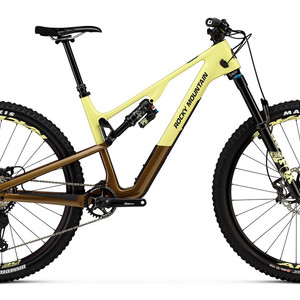

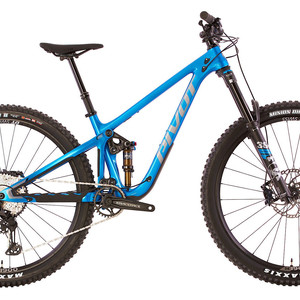
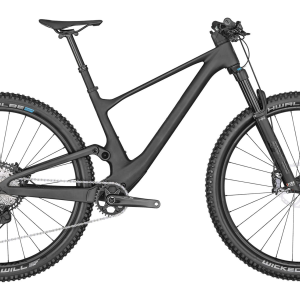
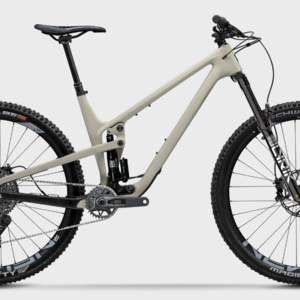

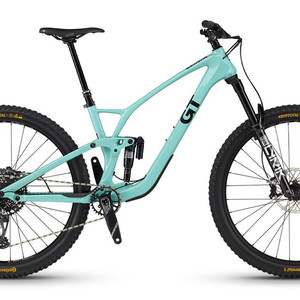








3 comments
Post a reply to: Long-Term TEST - Kona Hei Hei CR / DL - Cross-country Done Kona'